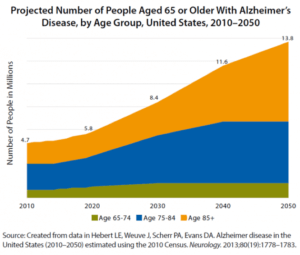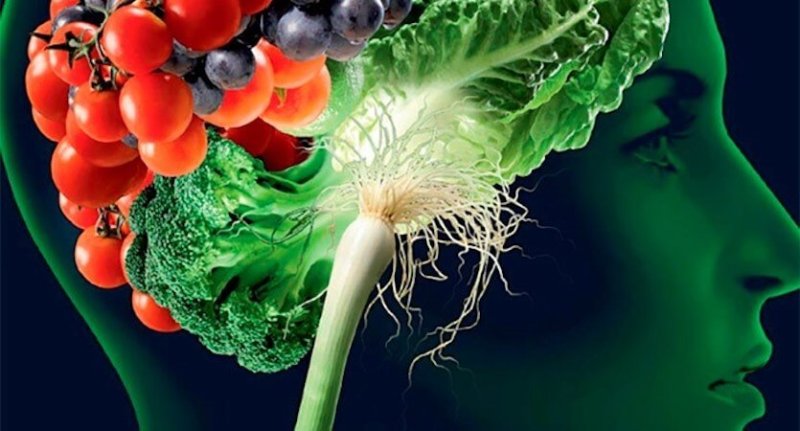Every 65 seconds, someone in the United States develops Alzheimer’s. So in the time it takes you to read this article, five people will have developed the disease. Alarming? Yes, but what if there was a diet that could help slow cognitive decline by targeting brain protective foods that combat the causes of dementia-related diseases?
The MIND diet
Martha Clare Morris, Ph.D., from Rush University and her colleagues conducted a Memory and Aging Project (MAP) on over 900 senior participants who kept food journals for four and a half years. The participants were then evaluated for frequency of dementia-related incidences to uncover trends.
The MIND diet resulted in a 53 percent decreased risk of Alzheimer’s development for those who rigorously adhered to the diet and 35 percent decreased risk for those who even moderately followed its parameters. Brain function of those who strictly followed the diet was similar to that of a person 7.5 years younger!
“It was surprising that even those individuals who had moderate adherence to the MIND diet had a reduced risk of Alzheimer’s disease…. It’s the first clinical trial designed specifically to establish whether a diet can prevent brain degeneration,” – Martha Clare Morris, Ph.D., Rush University
The initial findings were published in The Journal of the Alzheimer’s Association. By building upon the most compelling findings in the diet-dementia field, MAP compounds extensive published studies on the Mediterranean Diet and the Dietary Approaches to Stop Hypertension (DASH) diet.
Results from the Mediterranean diet studies show a decrease in heart disease, reduced blood pressure and lower LDL (bad) cholesterol. The DASH diet conclusions showed increased HDL (good) cholesterol and decreased LDL while lowering risk for heart failure and stroke. By creating a hybrid of the two diet plans, the MIND diet study has had incredible brain protective results.
“What they’re doing is logical and I predict will have positive benefits for a disease for which we have few interventions,” notes Dennis Steindler, Ph.D., senior scientist, and director of Tufts’ HNRCA Neuroscience and Aging Laboratory.
Alzheimer’s is a national crisis
Alzheimer’s currently affects over 5.7 million Americans and is the 6th leading cause of death in the United States. In 2017 alone, more lives were lost to Alzheimer’s than breast cancer and prostate cancer combined, with one in three people over 65 dying with the disease. The trajectory of the disease is expected to increase to almost 14 million deaths a year by 2050.

What causes Alzheimer’s disease?
Alzheimer’s is a progressive disorder that causes brain cells to degenerate and die. Scientists believe that many factors influence Alzheimer’s and its progression. These factors vary from person to person but can include genetics, lifestyle, and health factors.
What is the MIND diet?
The MIND diet highlights healthy food groups to readily consume and unhealthy foods to limit. “Brain-healthy food groups” include green leafy vegetables, other vegetables, nuts, berries, beans, whole grains, fish, poultry, olive oil, and wine. Unhealthy groups are red meats, butter, stick margarine, cheese, pastries and sweets, and fried or fast food.
What you are eating, combined with what you are limiting, combats brain cell death, chronic inflammation in the brain, and plaque build-ups.
Hayley Philip is a writer/researcher for Dirt to Dinner with a focus in health and nutrition
This article is published as part of a partnership with Dirt to Dinner, which can be followed on Twitter @Dirt_To_Dinner.































